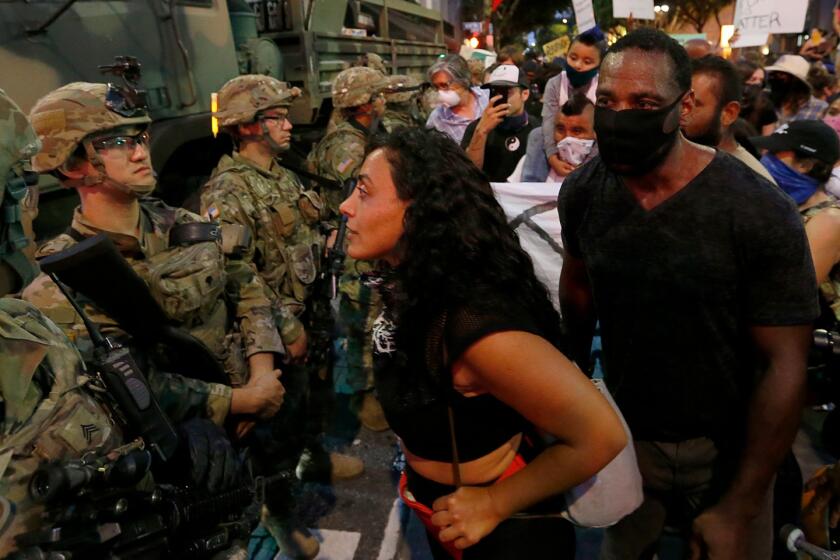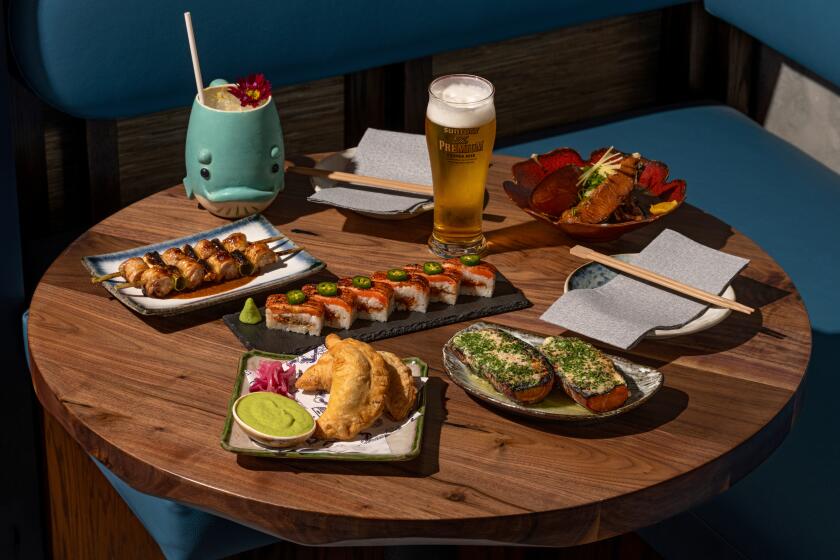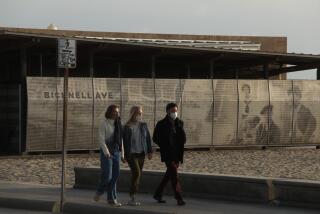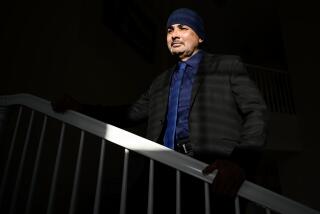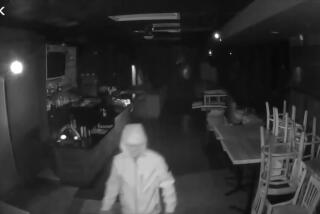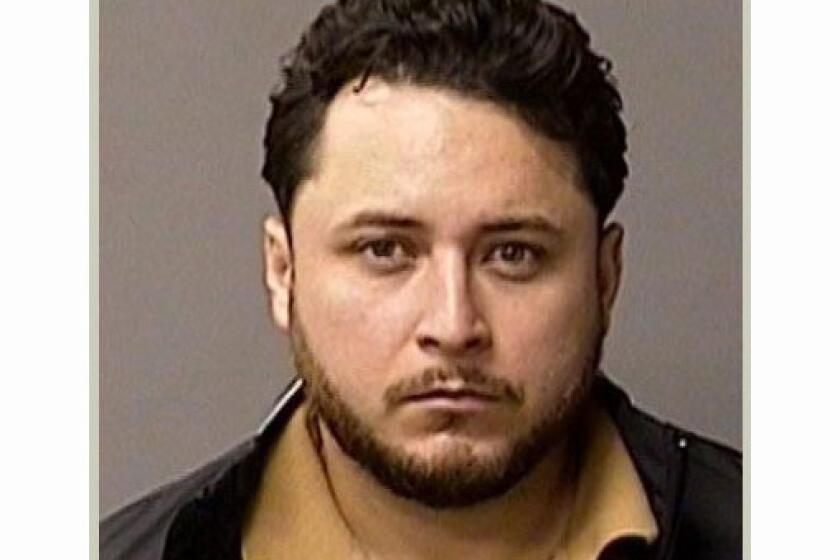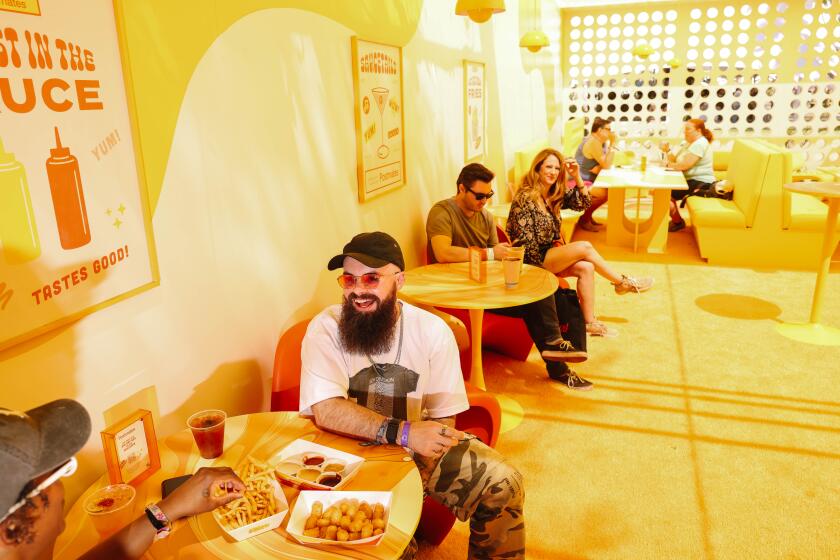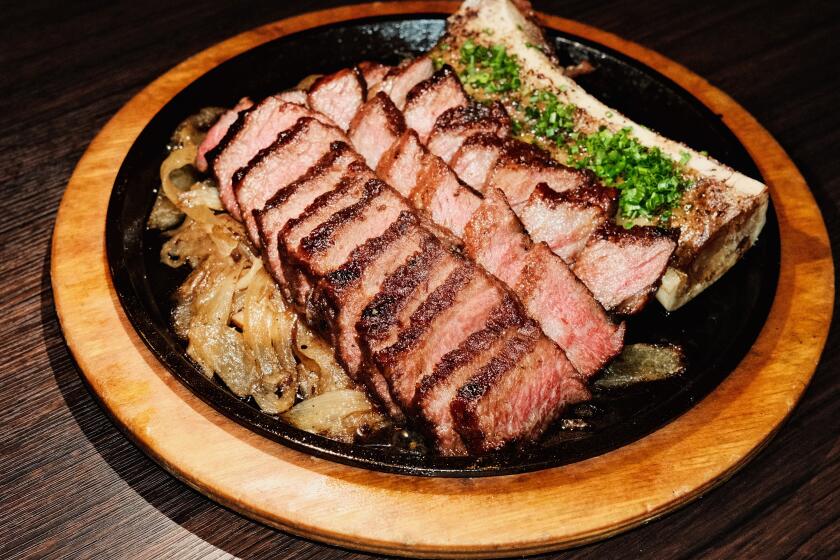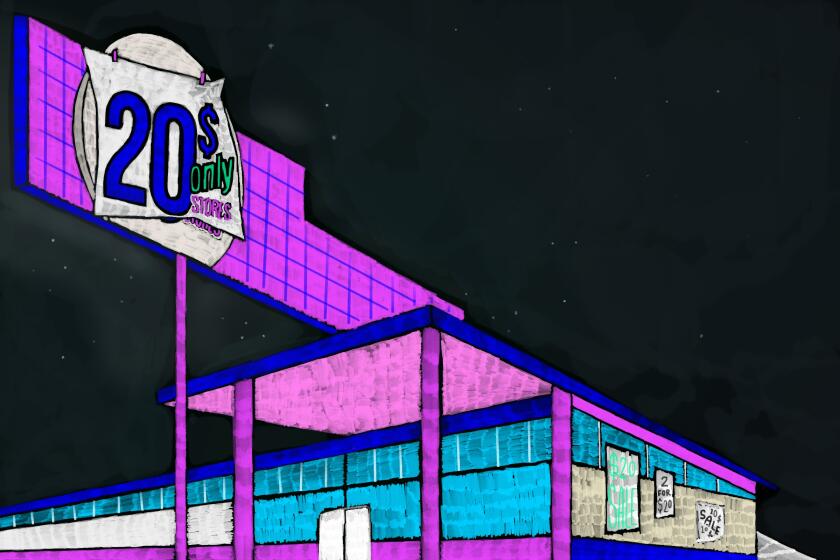After vandalism hit their restaurant, a family hardly has time to ask, ‘What’s next?’
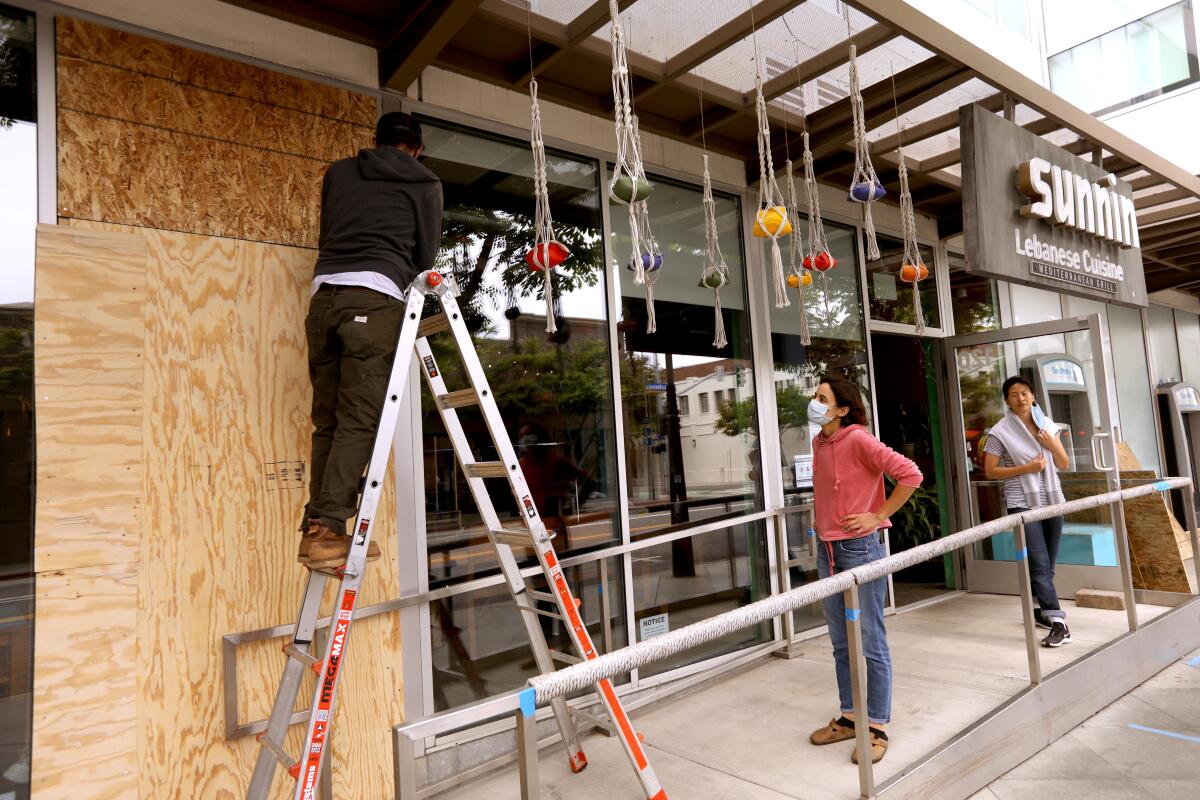
The activity inside the Santa Monica location of Sunnin felt urgent on late Monday morning. Community volunteers, in their protective masks, had spread out through the restaurant’s dining room: They picked up shards of broken planters and swept spilled soil, righted turned-over furniture and stacked it against the wall, scrubbed sky-blue paint from toppled cans off the concrete floor. Several of them worked to nail plywood over the shattered window where pillagers had entered the day before.
In Sunnin’s kitchen, Nicole Chammaa packed food furiously with her family and employees, carefully stacking rolled grape leaves in containers and tumbling sliced tomatoes and shredded lettuce into huge plastic bins. Two upright shawarma rotisseries sat still and empty.
Chammaa came out from behind the kitchen line to take in the scene. “This was my life, my baby,” she said, shaking her head.
Sunnin was among the businesses vandalized in Santa Monica on Sunday, after largely peaceful protests turned chaotic with break-ins and destruction. Chammaa’s restaurant stands 2½ blocks from Sake House, a sushi bar on the corner of 4th Street and Santa Monica Boulevard that was set on fire. On Monday business owners of all kinds were securing boards to their storefronts, hurrying to meet a 1 p.m. curfew in anticipation of another round of protests. (On Monday night demonstrations mostly ended up migrating to Hollywood; ransacking occurred in Van Nuys.)
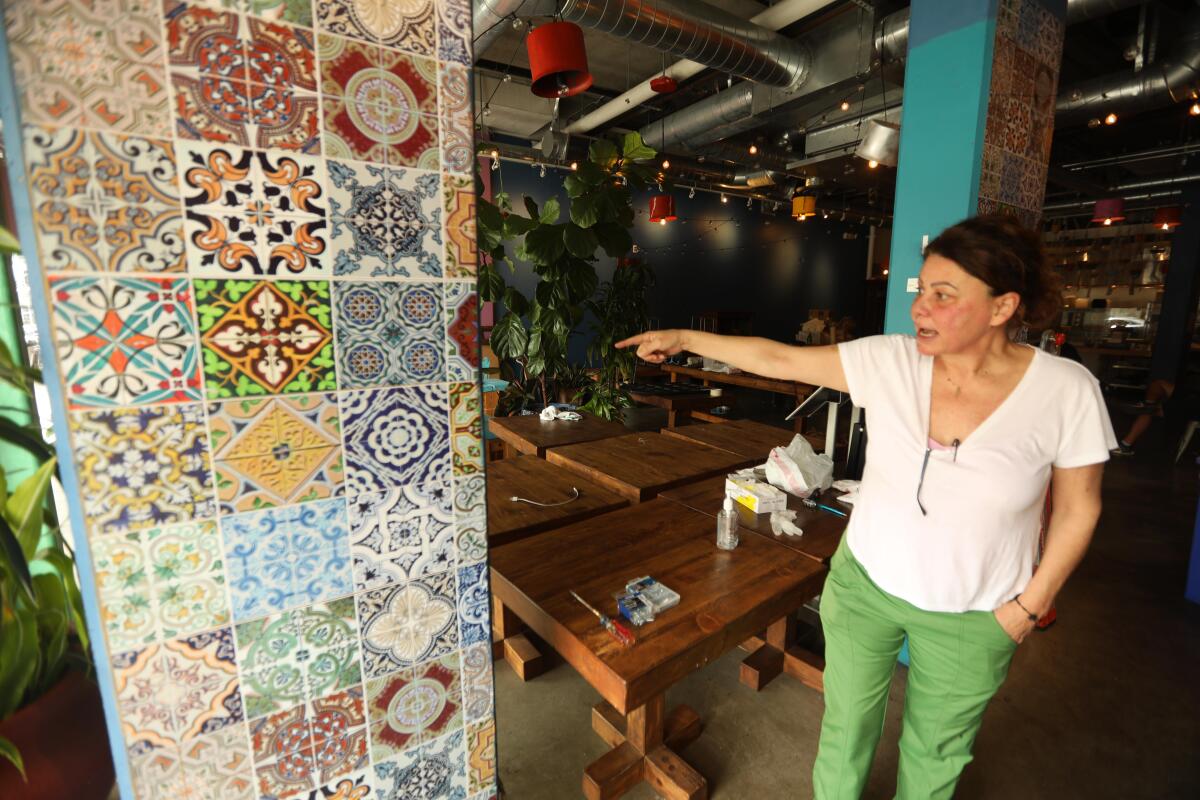
Like many restaurateurs, Chammaa and her family — she is one of five siblings who, with their mother Fayeza, own the original location of Sunnin in Westwood — say they stand in solidarity with protests over the killing of George Floyd by a Minneapolis police officer, acknowledging the systemic racism that endangers black lives.
“I’m not a white American,” said Nicole’s brother, George Chammaa. “I don’t have blond hair and blue eyes — but I’m not black, I can’t know what it’s like to be targeted like that.”
Get live updates from Los Angeles Times journalists as they report on protests across the U.S. after the death of George Floyd while in police custody.
Still, the violence that wrecked the Santa Monica restaurant this week stirred memories of their childhood in Lebanon. “I grew up during the civil war,” Nicole said. The conflict lasted from 1975 to 1990. “I came here when the war ended. Now I’m witnessing a different kind of war.”
Her father was employed by the Port of Lebanon when the fighting began; when he lost his job her mother mastered cooking large stews — dishes like fassuliah bil lahme (lima beans with meat) or loubieh bil zeit (green beans in olive oil with tomatoes) — that could feed her family for several days.
After moving to the United States, Fayeza channeled her expertise to open the Westwood Sunnin in 1996. It’s become a Los Angeles institution for falafel, hummus and shawarma, and also specials like koussa (summer squash stuffed with ground beef and rice and simmered in tomato sauce) and kibbeh maklieh (crisp beef and bulgur croquettes in yogurt sauce).
Nicole spun off the Santa Monica location 4 1/2 years ago, in part to create a second restaurant as another income stream for younger generations of her family. Lunch was her big business. Dinner could lag, so she was in the process of renovating the interior, to make it bolder in color and richer in textures — an inviting environment similar to the Westwood location.
“Then this happened,” she said.
“This” began with the COVID-19 shutdown in mid-March. Nicole had closed the Santa Monica location for the first couple months and had only begun serving takeout, setting up a table in front of the door to place orders for contactless pickup. Even with permission to reopen last week, she wasn’t yet feeling ready to have customers in the dining room.
The Westwood location has offered takeout since the shutdown’s inception. Business had dropped 65% at the beginning, George said, but has grown busier, particularly on the weekends; he estimated the restaurant was currently bringing in 45% less revenue than usual. On Monday afternoon he studied table diagrams, part of the protocol materials for reopening that he’d received from the County of Los Angeles Department of Public Health. “I’ll be able to fill the restaurant to 60% capacity if I’m lucky,” George said.
The night before, he’d boarded up the windows in Westwood out of an abundance of precaution. There were no protests planned in the area — no other businesses nearby had covered their windows — but life had taught the Chammaa family to anticipate calamity. “The Westwood restaurant employs a lot of people; the payroll feeds a lot of mouths.” Nicole said.
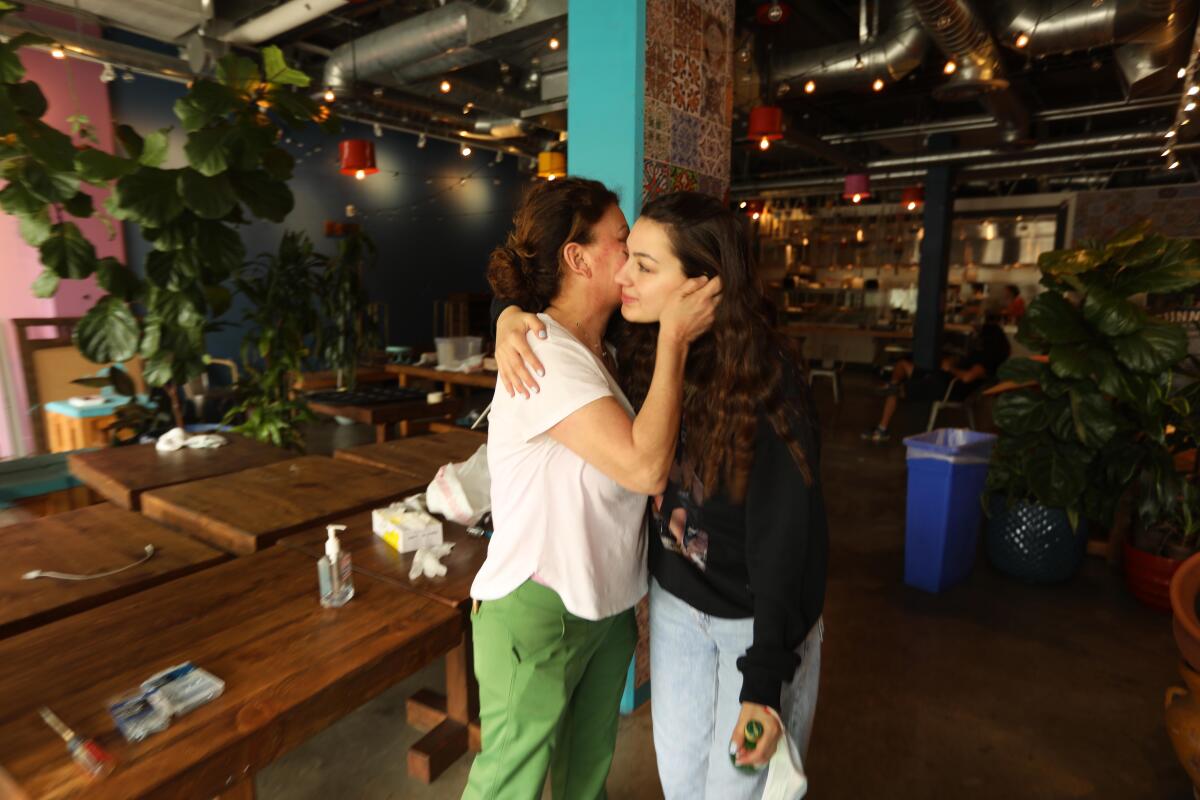
It was 1 p.m. now on Monday. A police car rolled by the Santa Monica restaurant; a voice announced the curfew over a tinny speaker and urged people off the street. All the food from the kitchen had been relocated to Westwood. Fouad Georges, a Lebanese designer who’d been working on the interior renovation, helped carry out a Turkish chandelier that had been spared.
Nicole didn’t know what was next. Her rent, she said, was more than $26,000 a month. She was attempting renegotiations with her landlord.
“I struggled here. I did good,” she said. “Maybe this is a sign for me. Maybe I need to let it go.”
Georges stood by her side. “We will make it more beautiful than ever next time,” he said.
Nicole kept her eyes on the floor. She didn’t respond.
More to Read
Eat your way across L.A.
Get our weekly Tasting Notes newsletter for reviews, news and more.
You may occasionally receive promotional content from the Los Angeles Times.
